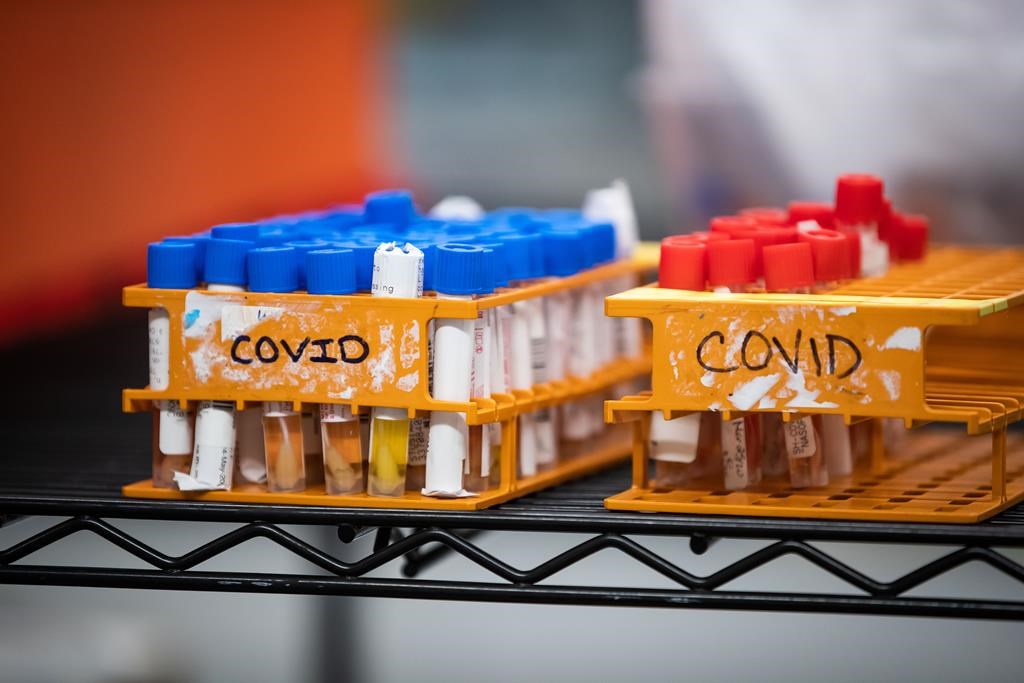I am 73 years of age.

Twenty years ago I was diagnosed with a 99 per cent blockage of my heart’s left anterior descending artery (LAD).
Usually, when a doctor hears this, a sharp intake of breath is followed by “And you’re still alive?”
READ MORE: Ontario projects just under 1,600 COVID-19 deaths, 80,000 cases by end of April
I did not experience a heart attack. Cardiologists told me, “You would have had only one.” That was my father’s fate before the medical technology which saved me was even on the drawing board. An angioplasty cleared my arterial blockage and a steel stent has kept it clear.
Some have described my still being here as “dodging a bullet” or “winning the lottery.” I think of it as both.
My heart is, according to recent and detailed testing, operating at 100 per cent efficiency. No blockages were discovered anywhere.
Great news. I had stopped thinking about the fact that what is accompanying me is life-threatening coronary artery disease (CAD). Until just weeks ago, I had no presenting reason to feel concerned for my cardiac well being.
Now I do.

If I were to be either terribly unlucky or sufficiently foolish to permit the virus that causes the COVID-19 to gain a hold in my respiratory system, my CAD instantly becomes a pre-existing threat to my life.
That’s not all.
I am also what I’ve come to call a “closet asthmatic.” That’s my term. Since childhood, relatively mild asthma has been my companion. Modern medical medications like one puff of a powder corticosteroid morning and night has for decades kept my asthma a largely non-issue. I do have a rescue inhaler but it reaches the expiry date long before it is empty.
So asthma was downgraded from daily concern to, and I don’t mean to be dismissive here, no big deal.
Now it is.
READ MORE: How COVID-19 is spreading across Canada
COVID-19, were I to invite it in, through ignoring social distancing, would stake a claim in my lungs, most likely rapidly compromising my ability to breathe.
COVID-19 gives literal meaning to taking your breath away.
There are ventilators, right? Mechanically supported breathing until my immune system kicks COVID-19 to the curb.
Likely not for me. I’m over 70.
The coronavirus is particularly dangerous to several groups of people with risk factors, such as those with auto-immune disorders or diabetes.
And we know it also assaults those of us 60 years of age and older with a particularly grim determination and too often with horrid consequences. Death in the absence of a ventilator is a very real possibilty. Ventilators are scarce.

A dilemma of immense ethical proportion ensues for the wonderful heroes attempting to deliver life-saving medical care to all under assault by COVID-19.
Should I, at 73 years of age, with now lifelong preexisting coronary and respiratory health threats, be afforded one of few respirators, when maybe mere metres from me, an otherwise healthy 20- or 30-something person with perhaps a young family faces an identical respirator need?
This isn’t easy to write because we all want to live; but, and speaking only for me, of course, I shouldn’t.
In any event, perhaps more than likely, I wouldn’t receive a ventilator.
READ MORE: Coronavirus pandemic puts Canada’s supply of ventilators in the spotlight
Doctors globally have already been forced to make this terrible choice. Many times.
The crisis will only become more extreme. Soon and suddenly, COVID-19 will explode into our lives, our care centres and hospitals with an as yet unimaginable ferocity.
If you’re a senior citizen, I know you have most likely thought about the reality facing our generation. If you’re not a senior, perhaps someone in your family or circle of friends is.
We all have choices. Not many, but the ones we have are critical.
Yes to my cohort, but not exclusively.
COVID-19 is a serious and possibly life-threatening reality to a younger person, a very much younger person.
As a matter of daily course, as a matter of survival literally, stay two metres distant from others and not just sometimes.
Engage in 14 days of complete self-isolation if you have recently been out of Canada and most definitely if you’re exhibiting any COVID-19 symptoms.
In the event of symptoms, immediately seek instruction from your provincial health phone option. Pay close attention to the medical advice you receive.
While those of us born in 1960 or earlier face the greatest threat to our lives from COVID-19, none us truly knows if the virus is incubating in our bodies at any given moment.

My job for decades has been to inform and debate.
I will continue to inform to the best of my ability, supported by an incredibly deep and diverse wealth of information from my colleagues at Globalnews.ca.
As far as ignoring personal obligations to our fellow citizens is concerned, debating is over.
Ignore obligations to interrupt the exponential spread of the coronavirus and you may become directly responsible for the death of another person. Perhaps me, perhaps someone you deeply care about. Perhaps yourself.
Be safe and stay well everyone.
—
Roy Green is the host of the Roy Green Show on the Global News Radio network.
—
Questions about COVID-19? Here are some things you need to know:
Health officials caution against all international travel. Returning travellers are legally obligated to self-isolate for 14 days, beginning March 26, in case they develop symptoms and to prevent spreading the virus to others. Some provinces and territories have also implemented additional recommendations or enforcement measures to ensure those returning to the area self-isolate.

Symptoms can include fever, cough and difficulty breathing — very similar to a cold or flu. Some people can develop a more severe illness. People most at risk of this include older adults and people with severe chronic medical conditions like heart, lung or kidney disease. If you develop symptoms, contact public health authorities.
To prevent the virus from spreading, experts recommend frequent handwashing and coughing into your sleeve. They also recommend minimizing contact with others, staying home as much as possible and maintaining a distance of two metres from other people if you go out.
For full COVID-19 coverage from Global News, click here.
—
Listen to the latest from the Roy Green Show
Subscribe to the Roy Green Show Podcast now at Apple Podcast or Google Play





Comments